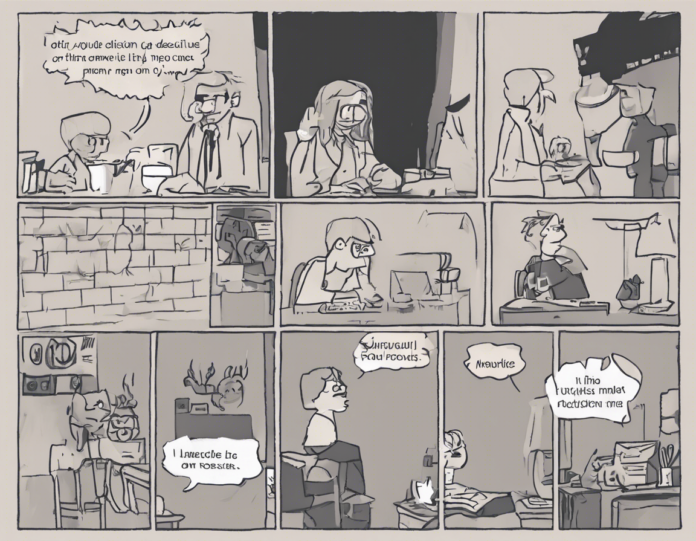Introduction:
Making tough decisions is an inevitable part of life. At some point, we are all faced with choices that have the power to alter the course of our lives significantly. Whether it’s deciding on a career path, ending a relationship, relocating to a new city, or tackling a major health decision, life-altering choices can bring about a mix of emotions, stress, and uncertainty.
Understanding the Gravity of the Decision:
When confronted with a life-altering choice, it’s crucial to understand the gravity of the decision at hand. Take the time to assess the potential outcomes and ramifications of each option. Consider how each choice aligns with your values, goals, and long-term vision for your life. Reflect on the significance of the decision and how it may impact not only you but also those around you.
Seeking Guidance and Advice:
It’s natural to feel overwhelmed when facing a tough decision. Seeking guidance and advice from trusted friends, family members, mentors, or professional counselors can provide valuable insights and perspectives. Discussing your thoughts and concerns with others can help you gain clarity and consider different angles that you may not have thought of on your own.
Weighing the Pros and Cons:
Creating a pros and cons list can be a helpful tool when trying to make a challenging decision. Write down all the potential benefits and drawbacks of each option. Consider factors such as short-term vs. long-term consequences, emotional impact, financial implications, and alignment with your values. This exercise can assist you in objectively evaluating the decision from a rational standpoint.
Listening to Your Intuition:
While it’s essential to analyze the situation logically, don’t ignore your intuition and gut feeling. Intuition can often provide valuable insights that go beyond rational thinking. Pay attention to your emotions and instincts when contemplating a life-changing decision. Your inner voice may guide you towards the right choice, even when the answer isn’t immediately clear.
Taking Time for Self-Reflection:
Before making a final decision, carve out time for self-reflection. Journaling, meditation, or simply spending quiet moments alone can help you tune into your thoughts and feelings. Reflect on your values, goals, fears, and aspirations. Connecting with your inner self can bring clarity and help you make a decision that is in alignment with your authentic self.
Managing Fear and Uncertainty:
It’s natural to feel fear and uncertainty when faced with a significant decision. Acknowledge your emotions and allow yourself to sit with these feelings without judgment. Practice self-care activities such as exercise, meditation, spending time in nature, or engaging in hobbies that bring you joy. Managing stress and anxiety is vital when navigating a challenging crossroads in life.
Seeking Professional Help:
In some cases, the decision at hand may be so complex or emotionally charged that seeking professional help is beneficial. Therapists, coaches, or counselors can provide support and guidance as you navigate through the decision-making process. Professional assistance can offer you tools, strategies, and a safe space to explore your thoughts and emotions.
Making the Decision:
Ultimately, the decision-making process culminates in taking action. Trust yourself and the due diligence you have done in evaluating the options. Once you have made your choice, commit to it wholeheartedly. Understand that no decision is set in stone, and course corrections can be made along the way if needed.
Frequently Asked Questions (FAQs)
1. How do I know if a decision is truly life-altering?
A decision is considered life-altering if it has the potential to significantly impact your future, well-being, relationships, or overall trajectory in a substantial way.
**2. What should I do if I feel stuck in making a tough decision?
If you feel stuck, consider seeking outside perspectives from trusted individuals, engaging in self-reflection practices, and possibly seeking professional guidance to help you gain clarity and perspective.
**3. How can I overcome the fear of making the wrong decision?
Recognize that there is no right or wrong decision, only choices that lead to different outcomes. Embrace the learning experience that comes with making decisions and trust in your ability to handle the consequences.
**4. How do I deal with regret after making a tough decision?
Regret is a common emotional response to decisions, especially ones that are life-altering. Practice self-compassion, learn from the experience, and focus on moving forward rather than dwelling on the past.
**5. Is it okay to seek multiple opinions when making a tough decision?
Seeking multiple opinions can be beneficial in gaining different perspectives. However, ensure that the final decision aligns with your values, goals, and intuition rather than solely relying on external advice.
Navigating life-altering decisions can be a daunting and challenging process. By approaching the choice with mindfulness, self-reflection, and a willingness to embrace uncertainty, you can navigate through the crossroads with confidence and clarity. Trust in your inner wisdom, seek support when needed, and remember that every decision you make is an opportunity for growth and self-discovery.






